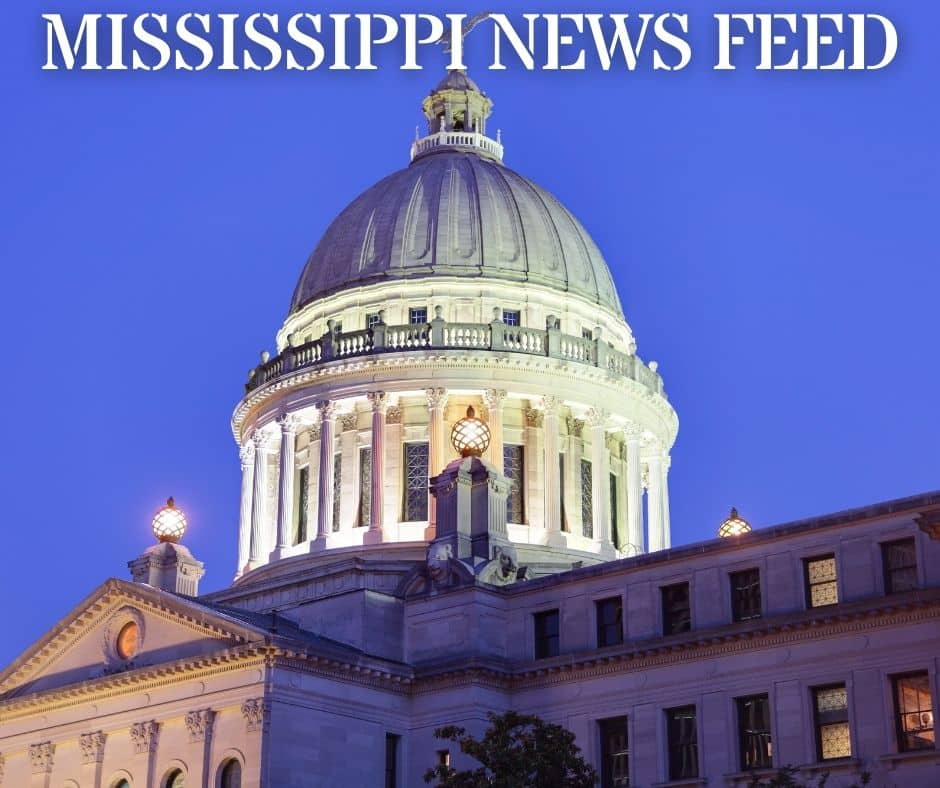Magnolia Tribune
The impact of Medicaid expansion on Mississippi
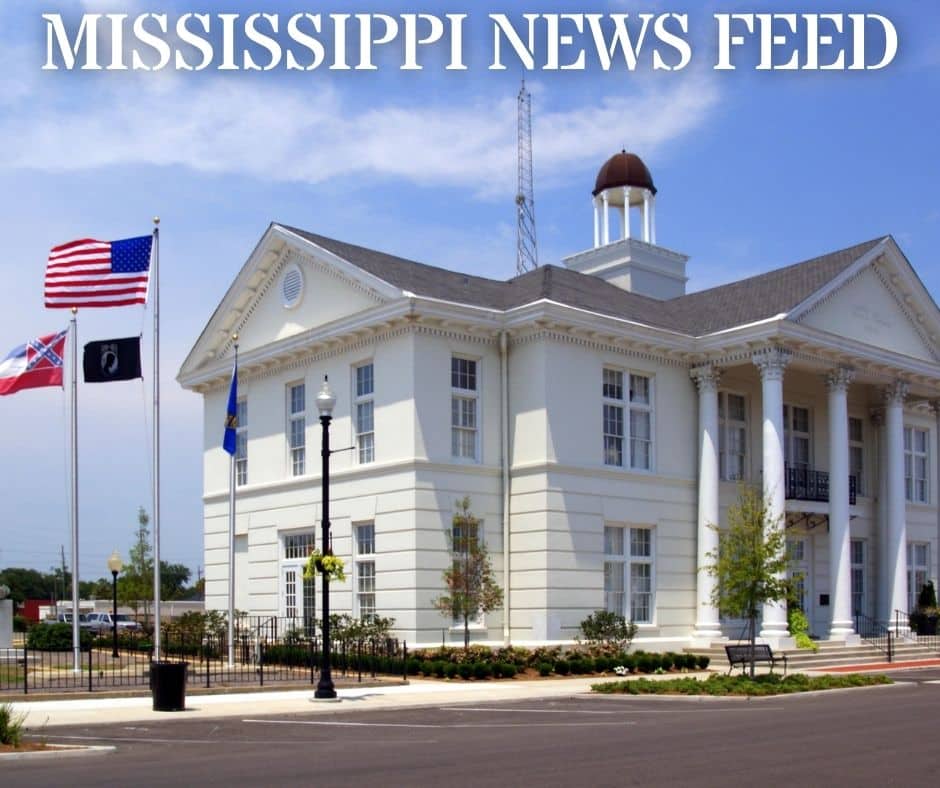
Medicaid expansion would increase the number of people on Mississippi’s welfare rolls to well over 1 million people at a cost in the billions, but would it increase access to care, improve health outcomes and help rural hospitals?
Medicaid expansion has been at the forefront of the race for governor this year. If enacted, what could we expect to see in terms of enrollment and costs? How would it impact access to care, health care outcomes and rural hospitals? Let’s dive in.
Enrollment & Cost
Medicaid is a government-run welfare program that provides taxpayer-funded financial aid to people who cannot afford their own health care. Over 837,000 Mississippians currently receive some form of Medicaid or Children’s Health Insurance Program (CHIP) benefits through the Mississippi Division of Medicaid.
In 2010, President Barack Obama led the charge to reform our nation’s healthcare system with the passage of the Affordable Care Act (ACA). Often referred to as “Obamacare,” the law permitted states to expand Medicaid eligibility up to 133 percent of the federal poverty level. To entice states to expand, the federal government agreed to pick up 90 percent of the total cost of expansion.
The Foundation for Government Accountability (FGA) has analyzed the impact of expansion on cost and enrollment across the country.
To date, 40 states have expanded Medicaid. The Kaiser Family Foundation estimated that these expansions states would add 8.6 million new Medicaid enrollees due to expansion. According to FGA, those states have actually added 19 million new enrollees, or more than double the original estimate.
Kaiser has estimated that expansion in Mississippi would add 231,000 new enrollees. However, if the pattern of overrunning estimates that has played out in other expansion states plays out in Mississippi, that number could increase to 491,000. Either way, the number of people on Medicaid in Mississippi would eclipse one-third of our population.
Kaiser projected the total state and federal cost of Medicaid expansion in Mississippi would be $1.81 billion a year. However, if enrollment were to follow the pattern from other states, the actual cost could be closer to $3.85 billion a year. This would mean that Mississippi’s portion would be roughly $385 million.
It bears noting that nothing prevents the federal government from changing the percentage of its contribution to expansion states. Policymakers should consider that possibility and what it would mean for state budgets should federal support be reduced at some point in the future. With a $33.7 trillion national debt, this risk is not theoretical.
It also bears reiterating that “federal dollars” are not free dollars. Federal spending is funded by taxpayers, including taxpayers who live and work in Mississippi.
Healthcare Outcomes
Presumably, the point of expanding Medicaid would be to improve healthcare outcomes. But Brian Blase, former White House adviser on healthcare under the Trump administration and President of Paragon Health Institute, argued in Magnolia Tribune article earlier this year that there is little evidence expansion improves outcomes:
As Medicaid enrollment for able-bodied and childless adults exploded, those who relied on the program—low-income children, pregnant women, and people with disabilities—had more difficulty getting care. In Medicaid expansion states, more people reported delaying medical care because no appointment was available or wait times were too long. Another study found that people living in expansion states had to wait longer for ambulances in emergencies.
Medicaid enrollees typically have worse health outcomes than those with private insurance or the uninsured, even after controlling for a variety of other factors that affect health. One of the reasons is that Medicaid patients often lack a consistent source of care. Onerous paperwork, administrative burdens, and low payment rates mean that many doctors—particularly the best ones—don’t treat Medicaid patients. Medicaid enrollees are often forced to use emergency rooms, and expansion significantly increased ER utilization for non-emergent conditions.
The most compelling evidence of Medicaid’s disappointing effect on health is from a lottery that Oregon used to expand Medicaid to some able-bodied, lower-income, uninsured adults. The winners of the lottery gained Medicaid enrollment, and the losers did not. It turns out that the lottery winners used more health care, but they did not experience physical health benefits as compared to the losers.
Crucially, during the first three years of the Medicaid expansion, life expectancy worsened in expansion states relative to non-expansion states. More people died of drug overdoses in expansion states. According to Sam Quinones’ book Dreamland, Medicaid fueled the opioid crisis. Quinones wrote, “The card provides health insurance through Medicaid, and part of that insurance pays for medicine—whatever pills a doctor deems an insured patient needs.”
One problem with Medicaid expansion is that expansion causes a surge in demand for medical services. However, there is not a corresponding increase in the number of doctors or nurses treating patients. This results in some people with pressing medical needs being crowded out by people with less pressing needs—harming overall population health outcomes.
Multiple studies have now shown only a marginal increase in the number of physicians accepting Medicaid patients in expansion states. The end result is more people with “coverage” flooding the same limited number of providers. Any serious effort to increase access to healthcare must not only look at how people pay for services, but must include a serious look at how protectionist policies in place in Mississippi, and across the country, restrict the number of providers.
It should be noted that one of the often ignored provisions in the ACA is the ability to purchase private health insurance on the so-called “Obamacare exchange,” with the premium subsidized by a premium tax credit.
Many workers earning income between 100-400 percent of the federal poverty level are eligible for plans with either fully subsidized or reduced premiums, as well as cost-sharing reductions on deductibles. That is to say that there is a more than viable alternative to Medicaid presently available for the working poor in Mississippi.
Saving Hospitals?
Rural hospitals are in crisis across much of America. Hospitals are closing or at risk of closure in both expansion and non-expansion states. Mississippi is not immune. The difficulty faced by rural hospitals has become a primary talking point in the debate around Medicaid expansion. The argument goes that rural hospitals are in danger of failing and that Medicaid expansion would save them.
The role Medicaid expansion would play in helping them weather the storm is far less clear over the long haul. Important questions include:
- Why are rural hospitals struggling in the first place?
- Is Medicaid expansion enough to solve for these problems?
Understanding the Problems Facing Rural Hospitals
There are two chief problems facing these facilities. First, rural communities are losing population. The trend is for people to move to more urban and suburban settings. In Mississippi, cities like Madison, Brandon, Southaven, Gulfport, Biloxi, Hattiesburg, and Oxford have experienced substantial population growth. Areas like the Mississippi Delta have seen dramatic declines.
LeFlore County, where Greenwood-LeFlore Hospital is located, has seen nearly fifteen percent (15%) of its population leave over the last decade.
The second pain point for rural hospitals comes from real changes in how health care is delivered. The era of medical treatment or surgeries followed by long hospital stays is largely over. Outpatient care is the new normal, meaning lower bed utilization rates.
The Rise of Ambulatory Surgical Centers
While hospitals offer outpatient procedures, ambulatory surgical centers are rapidly gaining market share. The U.S. ambulatory surgical centers (ASC) market was $35 billion in 2020. Growth is projected, at a compound rate of 6.9 percent, to $59 billion in 2028. The projected growth rates are consistent with employment forecasts. The Bureau of Labor Statistics predicts that the healthcare sector will generate approximately 3.4 million new jobs through 2028. More than half of these new jobs will be in ambulatory care services. Only 350,000 are projected to be in hospitals.
Cost is a primary driver for the shift to ambulatory care. A study performed by UnitedHealth Group found that outpatient procedures at ASCs were typically 59 percent less than outpatient procedures performed at hospitals. This meant a total cost savings of $4,559 per procedure and average savings to the patient of $684.
Private insurers are not the only ones moving toward ASC provided out-patient care. In 2020, the Centers for Medicare and Medicaid Services (CMS) proposed a payment increase for ASCs. The proposed increase was meant to create site neutrality between hospitals and ASCs. CMS has signaled a desire to remove many procedures from its in-patient only list. It has also actively added procedures that it will cover in ASC settings.
The writing is on the wall. Delivery of health care is moving away from large in-patient facilities.
Rural Hospital Crisis Byproduct of Falling Demand
It is impossible to experience double-digit population loss, at the same time as system-wide upheaval in delivery of care, and not expect falling demand at rural hospitals. For hospitals that were built to serve larger populations, these factors place an understandable strain. But that strain has very little, if anything, to do with Medicaid expansion. Occupancy rates at hospitals reflect the changing dynamics.
Mississippi has a tremendous supply of hospital beds for the size of its population. Only South Dakota and North Dakota have more beds per thousand citizens. Not only do we have a lot of beds, we have a lot of empty beds, with occupancy rates regularly among the lowest in the country.
Would Medicaid Expansion Solve Rural Hospital Problem
Medicaid expansion will not change double-digit population losses, nor will it reverse the move away from in-patient care. Because of this it is likely a temporary band-aid, at best, for rural hospitals.
Medicaid reimbursement rates often result in either negligible or negative profit margins. In the cases of both Medicare, which provides health coverage for senior citizens, and Medicaid, which provides coverage for impoverished citizens, the government is a volume buyer of care.
The American Hospital Association has estimated that on average Medicare reimburses eighty-four percent (84%) of the actual cost of seeing a patient. Medicaid reimburses at eighty-eight percent (88%) of the actual costs. This means that hospitals very often lose money serving these patients.
Hospitals make up for these losses through privately insured care. An analysis performed by the Kaiser Family Foundation found that private insurers paid nearly double Medicare rates for all hospital services. Notably, this means that working people are not only paying taxes to support programs like Medicaid. They are subsidizing the care a second time through their own higher insurance premiums and out-of-pocket costs.
Imbalance Toward Government-Funded Care Leads to Tricky Economics
In communities with an imbalance toward government-funded health care, the economics become very tricky. Many rural hospital systems benefit from Disproportionate Share Hospital Payments (DSH), which provide supplements for communities with higher-than-normal Medicaid populations. But studies still show that even with DSH, there is underpayment for Medicaid patients on average. Cuts to DSH allotments are scheduled nationally, though the start date of these cuts has been rolled back to 2024.
One interesting case study after the passage of the Affordable Care Act was an examination of the experience of Ascension Health Hospitals, the nation’s largest not-for-profit hospital system. In Medicaid expansion states, Ascension hospitals saw a decline in charity care of $35 million. On the flip side, it saw an increase in Medicaid underpayment of $23 million. Ascension experienced a net-savings of $12 million. However, the service of new Medicaid patients was not profitable. The system remained in the red when it came to serving low-income patients.
The takeaway is that increasing the number of Medicaid patients, by itself, does not pull a facility into the green. The net savings from reducing charity care must be offset by enough private payers and that is difficult in communities that primarily serve lower income patients.
Perhaps in recognition of the economics of reimbursement rates, incumbent Republican Governor Tate Reeves, who has opposed Medicaid expansion, has sought approval from the Center for Medicare and Medicaid Services to increase the Medicaid reimbursement rate to bring it inline with commercial insurance rates.
If approved, Reeves’ proposal would net Mississippi hospitals approximately $700 million a year. This likely would provide a longer runway to failing rural hospitals than full expansion, since full expansion does nothing to change the reimbursement rate problem. More people paying less than the actual cost of their care does not help improve long-term viability of hospitals. Of course, Reeves’ proposal, while cheaper than full expansion, also relies on federal largesse.
The post The impact of Medicaid expansion on Mississippi appeared first on Magnolia Tribune.
…
By: Russ Latino
Title: The impact of Medicaid expansion on Mississippi
Sourced From: magnoliatribune.com/2023/11/05/the-impact-of-medicaid-expansion-on-mississippi/?utm_source=rss&utm_medium=rss&utm_campaign=the-impact-of-medicaid-expansion-on-mississippi
Published Date: Sun, 05 Nov 2023 13:32:57 +0000
Did you miss our previous article…
https://www.biloxinewsevents.com/should-christians-tithe/
Magnolia Tribune
Staring mortality in the face at Christmas
My friend Jarrod is dying after an eight year battle with cancer. He’s lived a life worth celebrating, one that has drawn people to Christ.
I was going about my business this week when I received a text that stopped me in my tracks. A college friend was being moved to hospice care.
Jarrod Egley was diagnosed with colorectal cancer in early 2017. In the fall of 2018, tests revealed the cancer had spread to his lungs and Jarrod’s cancer was classified as Stage IV.
For almost eight years from the date of the original diagnosis, he’s fought. Through surgeries, radiation, endless rounds and cycles of chemotherapy, and experimental immunotherapies, he’s fought.
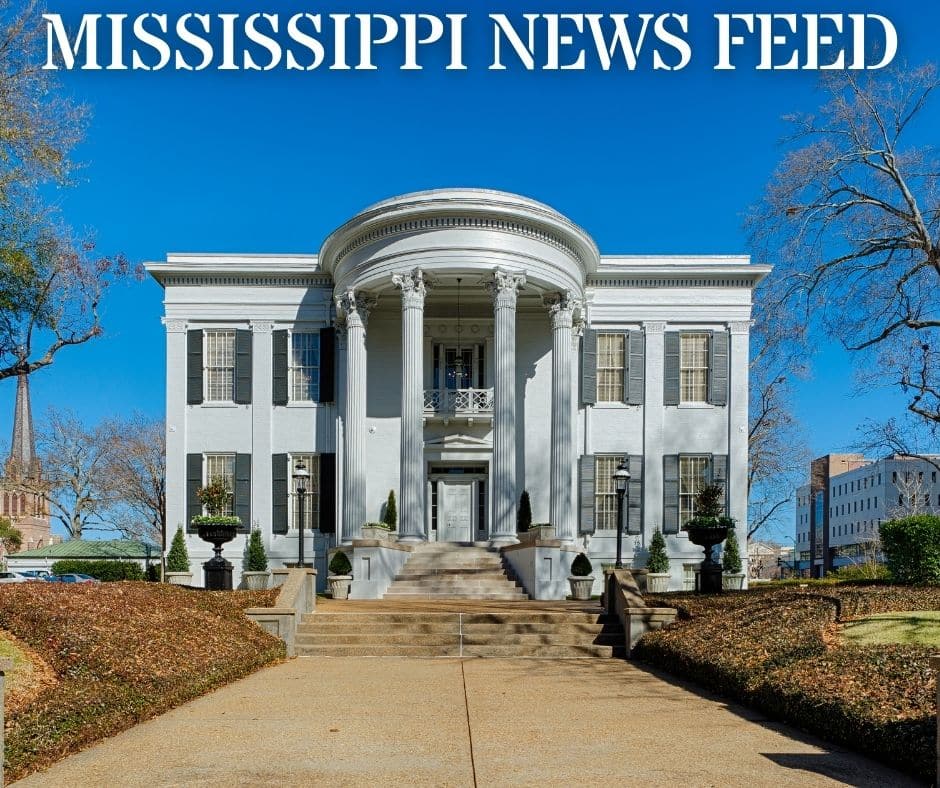
Last year, I flew out to California and spent some time with Jarrod and his wife, Emily. We sat outside one night. He acknowledged to me that it was not a question of ‘if’, but ‘when’ the cancer would claim his life. I told him I was sorry, because what else is there to say?
We talked about our faith, about the trials of Job, about Jacob wrestling with God, about Paul’s affliction. But mostly we reflected on our time together in school, on the good things, and the mundane things, that happened since.
Jarrod and I met at Tulane University. One Sunday morning in the Spring of my freshman year, I rose from my dorm room bed, dressed, and began walking down Saint Charles Avenue in New Orleans with no particular agenda. I walked until I came across First Baptist Church and the thought flickered in the vacuous recesses of my brain to enter.
Some would say it was a lark. The Calvinist in me says providence. The walk that morning changed the trajectory of my time at Tulane and my life on the whole. Intervarsity Christian Fellowship and the Baptist Collegiate Ministry became central to my life and put me in regular league with Jarrod. I met him first at the BCM and we ultimately ended up attending church together.
Jarrod was a faithful servant on and off campus. He helped organize a group of us that would weekly make our way down to the Esplanade seawall on the backside of the French Quarter to feed the homeless. On Friday nights, he could be found at chapel with a small cadre of students foregoing Bourbon Street for early 2000s worship music.
Jarrod was a loyal friend in those years. Never rude or biting. Not prone to an insult for an easy laugh. Persistently encouraging. An engineering student, his mind worked linearly and was oriented to problem solving. There were never a lot of wasted words — always a lot of deliberative questions when he disagreed or did not understand a point. He exhibited intelligence, empathy, and the kind of moral conviction that sets someone apart.
He also had a wry and dry sense of humor and a penchant for beating people at Madden football. He was fair-to-midland on the ultimate frisbee pitch. Along the way, there were crawfish boils, Mardi Gras outtings, poorly attended Tulane football games, and more than a decent amount of wing eating.
After college, I lost touch with Jarrod. He moved back to his home state of California. He got married to his college sweetheart, who could not have anticipated her husband’s journey, but has been a steady and constant helpmate throughout. Jarrod became a very successful engineer and a bourbon connoisseur. One of his bucket list trips took him to Kentucky, where he got to meet and became friends with bourbon “Hall of Famer” Freddie Johnson of Buffalo Trace acclaim.
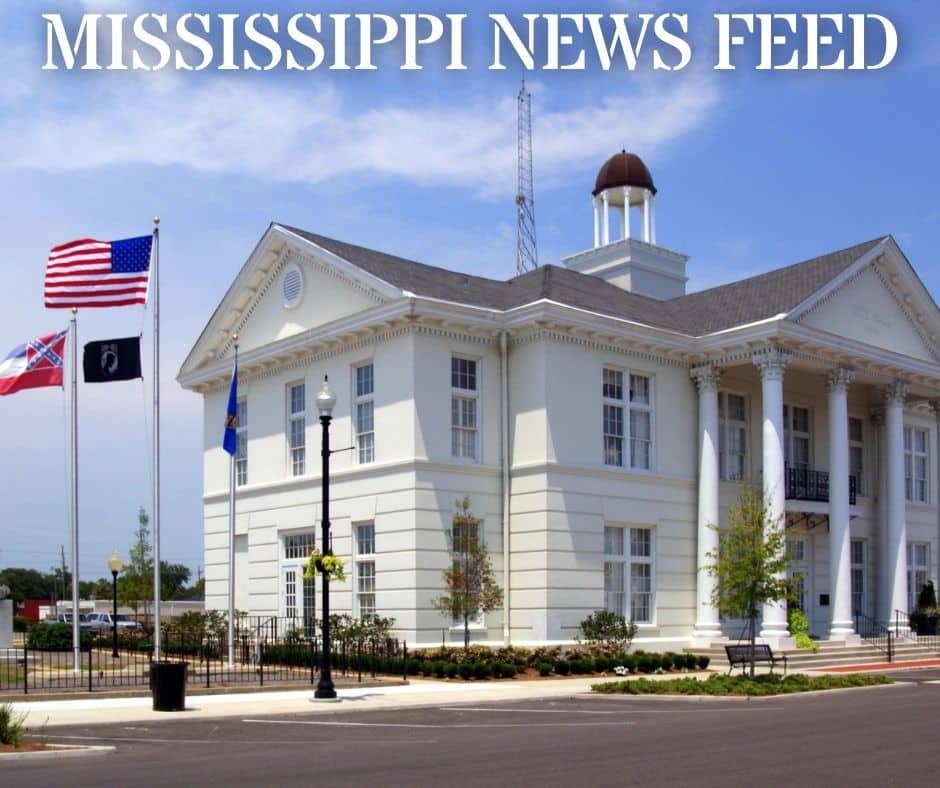
Sitting in his backyard nearly 20 years after graduating from Tulane, I saw many of the same qualities I had grown to admire when we were students together. I saw a husband who doted on and supported Emily’s passions. But I also saw someone whose body had been beaten to hell and back, who was tired, and who, like Jacob, had been wrestling with God. We quickly fell back into friendship, which perhaps is the mark of good friendship.
We all have aspirations in our youth — for the kind of spouse or parent we might be, for what we might accomplish, for what we might experience. Along the way, dreams are satisfied, modified, or they die on the vine. The clock inevitably works against all of us. That night in Oceanside, California, Jarrod, a numbers guy, saw that time was not on his side. He believed, as we all would, that he still had more to give, more impact to be made, and more things to see and experience.
After that trip, Jarrod and I stayed in touch, most frequently triggered by news of his cancer. It has been mostly the bad variety in recent months. Now spread throughout his body, down to his bones, he has lived in constant pain for months. Not even a steady diet of morphine and an implanted pain pump solve for it. Jarrod’s been hospitalized twelve times just in 2023.
But his matter of fact sense of humor and way of seeing the world remains in tact. So too does his faith that despite these trials, he has always been safe in the hands of Christ.
There are people in the world who believe that life is random, disordered, and without reason. I am not among them. I think my friend is staring mortality in the face at Christmas for a reason.
For thousands of years before Christ came, there was darkness and despair. Sin and shame gripped the hearts of men. Until one holy night, God, in His infinite love, mercy and wisdom, sent His son to save. Jesus is the light of the world and the hope of man. He has won victory over death and Jarrod’s will not be the exception. Jesus came for Jarrod, and for you.
For thousands of years since Jesus’s death, burial, and resurrection, His disciples have been used as divine instruments to point the way to God. Jarrod is among them. If life expectancies were the measure, Jarrod would be at the midway point for most people. He’s made a lifetime of impact for the Kingdom and on other people.
So, to my friend Jarrod, you were placed here with a purpose. You have run your race. You are loved. And when this chapter closes, you will hear “well done, my good and faithful servant.” There is no greater evidence of a life well lived.
While Jarrod and Emily have been fortunate to have health insurance, their portion of the medical bills so far in 2023 have eclipsed $30,000, and Emily is facing additional uncovered expenses during Jarrod’s hospice care, including a night nurse that costs over $400 a night. If you would like to help defray the cost, a contribution can be made at their Go Fund Me page.
The post Staring mortality in the face at Christmas appeared first on Magnolia Tribune.
…
By: Russ Latino
Title: Staring mortality in the face at Christmas
Sourced From: magnoliatribune.com/2023/12/16/staring-mortality-in-the-face-at-christmas/?utm_source=rss&utm_medium=rss&utm_campaign=staring-mortality-in-the-face-at-christmas
Published Date: Sat, 16 Dec 2023 15:05:22 +0000
Did you miss our previous article…
https://www.biloxinewsevents.com/magnolia-mornings-december-15-2023/
Magnolia Tribune
Magnolia Mornings: December 15, 2023
Important state and national stories, market and business news, sports and entertainment, delivered in quick-hit fashion to start your day informed.
In Mississippi
1. Laurin St. Pe’ named CEO of Singing River Health System
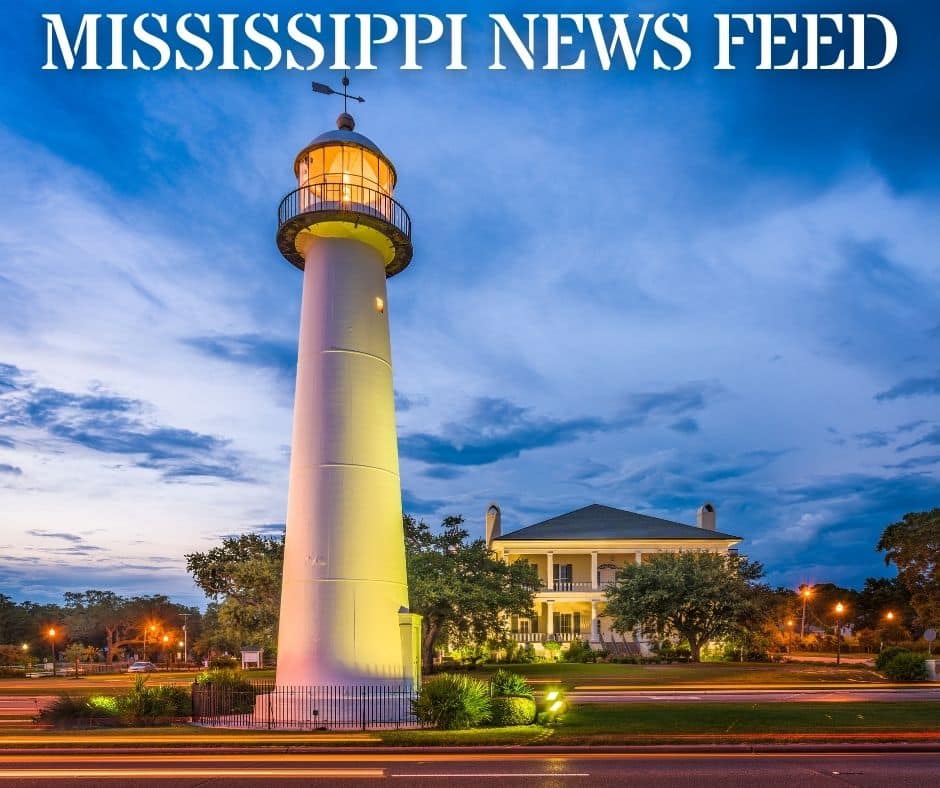
The Board of Trustees of Singing River Health System announced the immediate appointment of Laurin St. Pe’ as the Chief Executive Officer on Thursday.
“We are thrilled to announce Laurin St. Pe as the new CEO of Singing River,” said Steve Ates, Board President in a statement. “His wealth of healthcare experience and proven track record make him the ideal leader to steer our health system toward its next phase of growth and success.”
St. Pe’, who has been serving as Interim CEO since July 2023, said he is honored to assume the role of CEO at Singing River. He has worked at Singing River as Administrator of Singing River Health System’s Pascagoula Hospital and Gulfport Hospital, in addition to overseeing program service lines throughout the entire system to his subsequent appointment as Chief Operating Officer of Singing River.
The health system says St. Pe played a crucial role in the financial revitalization of Singing River Health System while steering the organization toward financial stability.
2. Gulfport-Biloxi airport, Stennis evacuated after threats
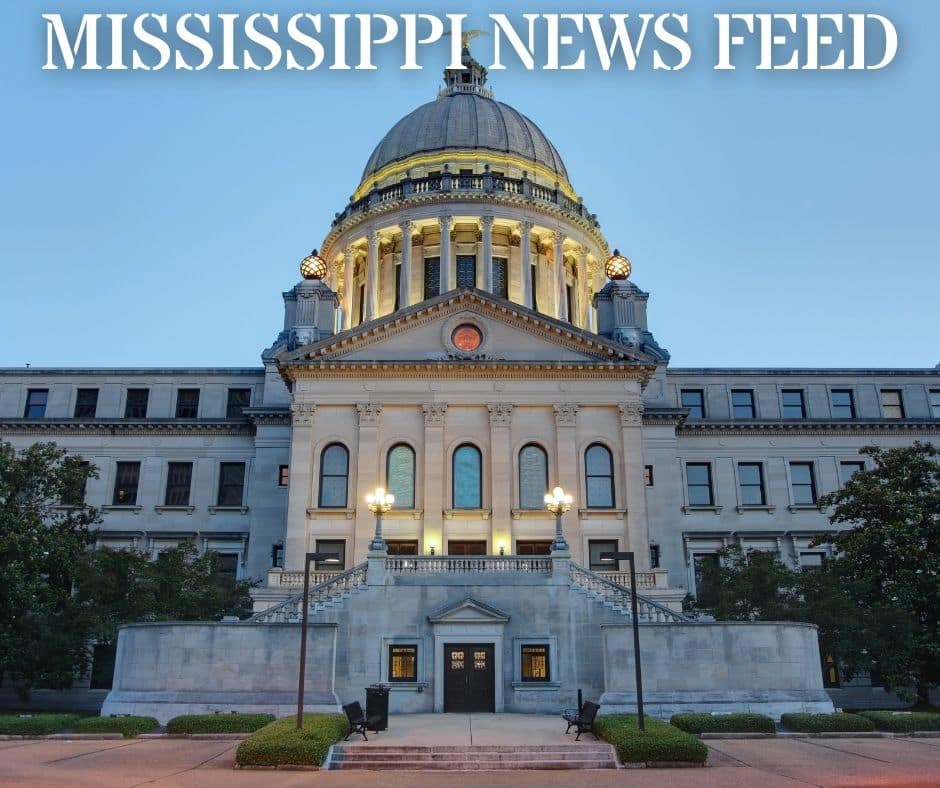
The Gulfport-Biloxi International Airport was evacuated on Thursday morning “out of an abundance of caution,” airport officials said, after receiving an emailed threat to certain transportation entities across the state.
The airport was thoroughly security swept, cleared and reopened in just over two hours. Gulfport-Biloxi is now operating regularly.
The threat was also sent to Stennis International Airport. Their staff and personnel were also evacuated until the facilities could be swept and cleared.
Any passenger whose travel was affected by the evacuation is encouraged to contact their respective air carrier.
3. Cassidy arrested in Iowa for beheading Satanic Temple statue
Former Mississippi congressional and legislative candidate Michael Cassidy was arrested this week in Iowa for beheading a statue at the state’s Capitol erected by The Satanic Temple.
Cassidy reportedly decapitated the statue and turned himself to police on Thursday. He was charged with fourth degree criminal mischief. He then started an online legal defense fund where he’s raised upwards of $20,000 as of Thursday night, according to his X account.
4. “Serial fraudster” ordered to cease offering investments into companies
According to the Mississippi Secretary of State’s office, on October 26, 2023, Secretary Michael Watson and the Securities Division issued an order against Stephone N. Patton. The SOS says Patton is a serial fraudster with multiple criminal convictions in Mississippi and Florida.
Through business filings with the SEC and Mississippi, Patton has held himself to be the CEO of various companies, including Star Oil and Gas Company, Inc., North Gulf Energy Corporation, Inc., Patton Oilfield Services, Inc., and Patton Farms, LLC.
The SOS says using these business filings and company websites, Patton claimed to have raised hundreds of billions of dollars through investment opportunities. Through investigative efforts and collaboration with the SEC, the SOS discovered none of Patton’s companies are operational, have any assets, or generate any revenues. Account records show Patton spent investors’ funds almost as soon as he received them on personal expenses. The total amount of known investments made to Patton’s fraudulent companies is over $80,000. Further, none of Patton’s investment offerings have been registered or notice filed with the Mississippi Secretary of State’s Office.
The SOS order requires Patton to cease and desist from offering investments with his companies, requiring Patton to permanently deactivate his companies’ websites to prevent any further dissemination of his false or misleading information. Patton is also ordered to pay an administrative penalty of $25,000 to the Mississippi Secretary of State’s Office for these violations, in addition to restitution owed to all his Mississippi investors.
National News & Foreign Policy
1. Congressional retirements mounting as 2024 election cycle nears
Retirement and departure announcements are piling up ahead of the start to the 2024 election cycle. The New York Times has developed a Retirement Tracker that currently shows 22 Democrats and 11 Republicans who are in Congress now will not be seeking re-election next year.
“Dozens of members of Congress have announced plans to leave their seats in the House of Representatives, setting a rapid pace for congressional departures, with more expected as the 2024 election draws closer,” the NY Times reports. “Given Republicans’ razor-thin House majority, the wave of exits has the potential to lead to a significant shake-up next year.”
You can find the tracker here.
2. Texas, Daily Wire, The Federalist sue U.S. State Department over media censorship
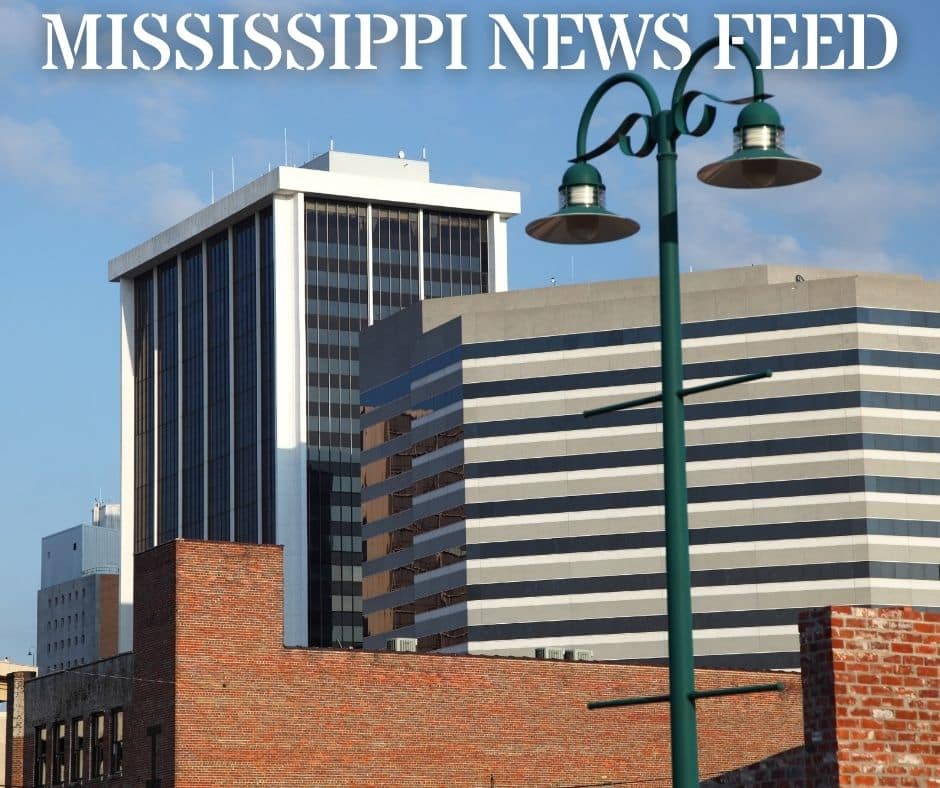
The U.S. State Department’s Global Engagement Center has come under fire as Texas Attorney General Ken Paxton along with The Daily Wire and The Federalist have filed a federal lawsuit alleging that the department funded technology that could “render disfavored press outlets unprofitable.” They claim that the department has helped social media – Facebook, YouTube and X (formerly Twitter) – to censor free speech while funding technologies used to censor right-leaning news outlets such as theirs.
New Civil Liberties Alliance is representing The Daily Wire and The Federalist. Paxton and the outlets claim the Global Disinformation Index (GDI), a British think tank, received a $100,000 grant from the State Department in 2021, and NewsGuard, which rates the “misinformation” levels of news outlets, received $25,000 from the State Department in 2020, according to the lawsuit.
According to the State Department’s website, the Global Engagement Center’s mission is to direct, lead, synchronize, integrate, and coordinate U.S. Federal Government efforts to recognize, understand, expose, and counter foreign state and non-state propaganda and disinformation efforts aimed at undermining or influencing the policies, security, or stability of the United States, its allies, and partner nations.
As reported by Reuters, the lawsuit cited a GDI-produced list from December 2022 that ranked The Daily Wire and The Federalist as among the 10 “riskiest sites” for news while the least-risky included The New York Times, Associated Press and NPR. Reuters notes that the lawsuit alleges such “blacklists” are reducing revenues to The Daily Wire and The Federalist along with their visibility on social media and ranking results from browser searches.
Sports & Entertainment
1. SEC releases 2024 schedules
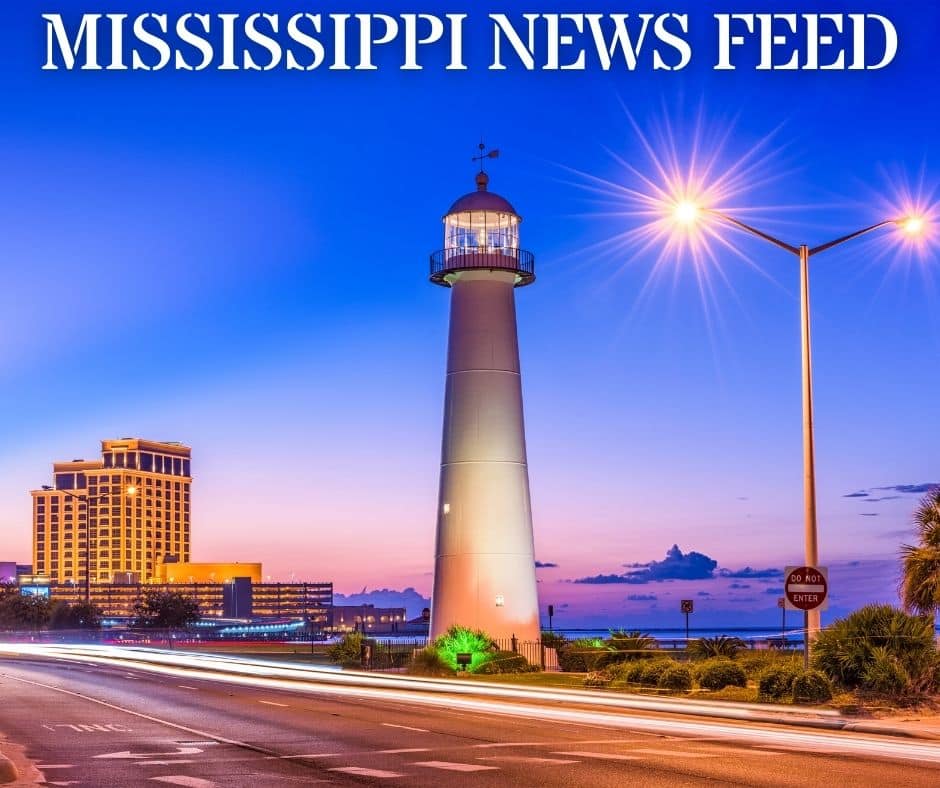
Wednesday evening, the Southeastern Conference released the 2024 football schedules for its member schools, including of interest in the Magnolia State the schedules for Ole Miss and Mississippi State.
It is the first schedule that includes new conference members University of Oklahoma and University of Texas, bringing the conference to 16 schools. Each SEC team will play eight conference football games plus at least one required opponent from the ACC, Big Ten, Big 12, Pac 12 or major independent, each team will have two open dates.
The 2024 season will be the first year the SEC will play a schedule without divisional competition since 1991. The top two teams in the league standings based on winning percentage will play in the 33rd SEC Football Championship Game in Mercedes-Benz Stadium in Atlanta on Saturday, December 7.
2. White, Jesiolowski, Jones honored by MAIS
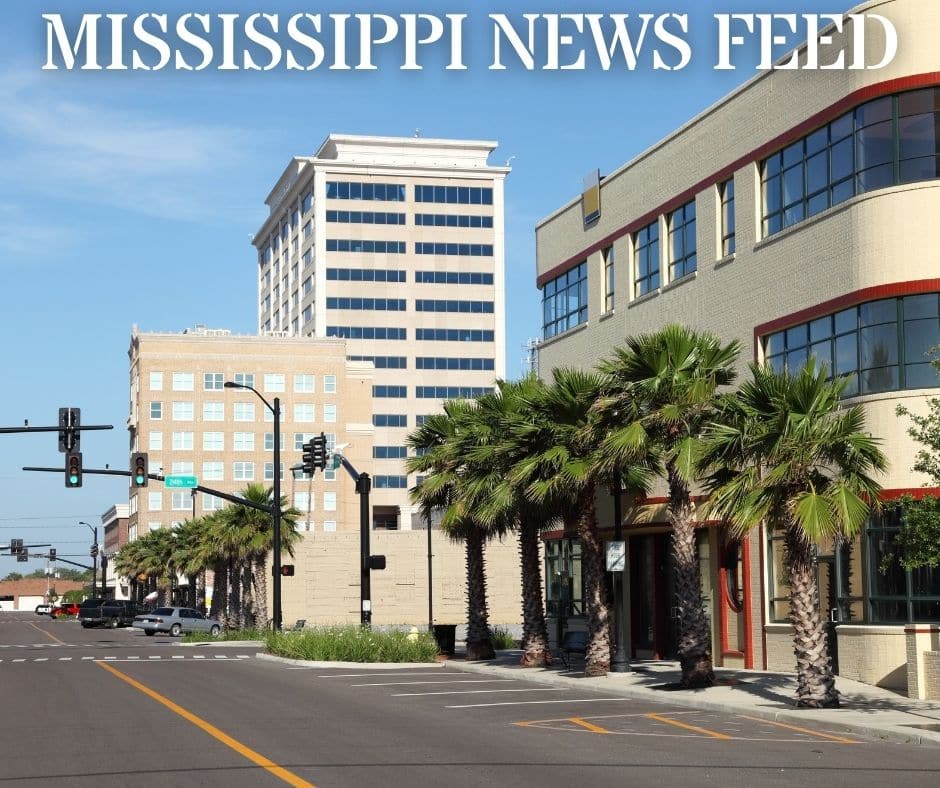
The Midsouth Association of Independent Schools (MAIS) in Mississippi, comprised of non-public schools, announced this week that Madison-Ridgeland Academy’s senior quarterback John White was named the 6A Player of the Year while Hartfield’s Reed Jesiolowski and Hartfield Chris Jones were named the MAIS 6A Offensive and Defensive Players of the Year, respectively.
All three have committed to play college football at the University of Mississippi.
White is Mississippi’s all-time leader in career passing yards with 15,259 yards, a record he broke during the 2023 season.
MAIS, like the Mississippi High School Activities Association (MHSAA) for public schools, is broken down into classifications, from 1A to 6A. However, MHSAA added a 7A this season.
Markets & Business
1. Consumer retail sales up as energy, gas prices move down
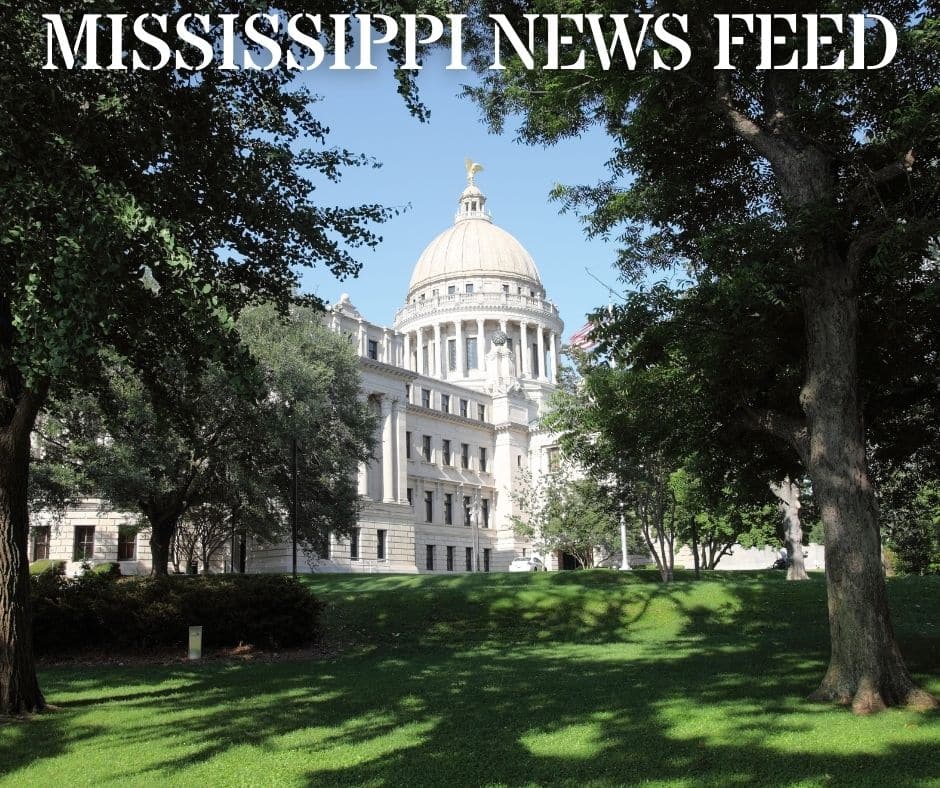
The U.S. Bureau of Labor Statistics reported this week that the Consumer Price Index rose 0.1% in November after being unchanged in October. Retail sales rose 0.3% in November after rising 0.2% in October, meaning consumers continue to spend at the start of the holiday season.
The CPI or inflation rate is 3.1%, higher than the Federal Reserve target of 2% but below the 9% peak in 2022 which reached a 40-year high.
As for the energy index, BLS reported that it fell 2.3% in November after decreasing 2.5% in October. The gasoline index decreased 6% in November, following a 5% decrease in the previous month.
The index for fuel oil fell in November, decreasing 2.7%. However, the natural gas index rose 2.8% over the month after rising 1.2% the previous month. The index for electricity also rose 1.4% in November, after increasing 0.3% in October.
The energy index fell 5.4% over the past 12 months. The gasoline index decreased 8.9%, the natural gas index declined 10.4%, and the fuel oil index fell 24.8% over this 12-month span.
2. Week’s market rally continues into Friday
At close of trading on Thursday, the U.S. markets continued the week’s rally, pushing the Dow up 158 points to 37,248 while the Nasdaq and S&P also made gains, 27 points and 12 points, respectively, to close at 14,761 and 4,719.
The record high for the Dow on Thursday moved futures up 102 points.
According to CNBC, the major averages are headed for their seventh straight positive week. As of Thursday, the Dow is higher on the week by 2.8%. The S&P 500 is up by 2.5%, while the Nasdaq Composite rose 2.5% this week.
Stocks rallied after the Federal Reserve left rates unchanged this week while members look towards cuts in the new year and beyond.
The post Magnolia Mornings: December 15, 2023 appeared first on Magnolia Tribune.
…
By: Magnolia Tribune
Title: Magnolia Mornings: December 15, 2023
Sourced From: magnoliatribune.com/2023/12/15/magnolia-mornings-december-15-2023/?utm_source=rss&utm_medium=rss&utm_campaign=magnolia-mornings-december-15-2023
Published Date: Fri, 15 Dec 2023 13:00:00 +0000
Magnolia Tribune
New water rates expected in Jackson come 2024; those who don’t pay face shut off
Interim Third-Party Director Ted Henifin said this week that only about 59% of the City of Jackson’s water customers are paying their bills.
JXN Water has announced new rates and fees coming in 2024. Those who are not paying will be at risk of shut offs.
The company, which was established by federal appointed interim Third-Party Director Ted Henifin, has been overseeing the city’s water system for the better part of a year.
Officials estimated that the average cost for water in the city was $76 per month for residents. Henifin clarified that JXN water will not attempt to recoup any charges prior to November 29, 2022, and will work with those who have failed to pay since that time.
He said only about 59 percent of the city’s water customers are paying their bills.
“You can’t forgive bills, so we have to be creative in how we part that,” said Henifin in reference to Mississippi’s laws that prevent giving away water.
According to a release by JXN Water announcing the rate changes, residents in single family households with small meters that use up to 748 gallons daily would see a bill increase of roughly .30 cents per day. Research indicates that the average U.S. family uses 300 gallons per day.
SNAP customers will have a new rate tier that could lower their bill by up to .69 cents per day, on average.
“Those who need to save the most benefit from saving money by drinking tap water. This new rate structure makes water affordability possible for 12,500 JXN Water customers who receive SNAP benefits,” said Henifin in the release.
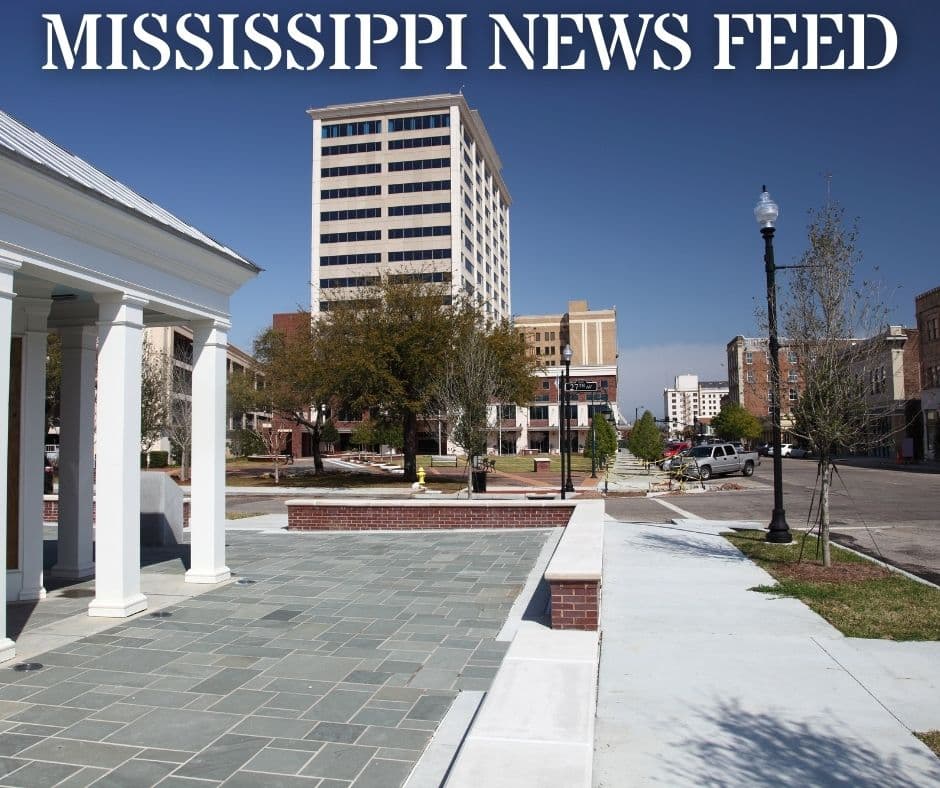
Read more about the anticipated rate changes here.
New fees will also be implemented, including a new service fee of $50, service deposit of $100, returned check fee of $25, service restoration fee of $100, and meter tampering charge of $500.
JXN Water has continued to encourage residents to use the water, with Henifin going on the record in a federal status hearing saying that the water “was safe to drink.”
More conversation regarding the billing process is expected to come at next week’s Jackson City Council meeting.
The post New water rates expected in Jackson come 2024; those who don’t pay face shut off appeared first on Magnolia Tribune.
…
By: Sarah Ulmer
Title: New water rates expected in Jackson come 2024; those who don’t pay face shut off
Sourced From: magnoliatribune.com/2023/12/15/new-water-rates-expected-in-jackson-come-2024-those-who-dont-pay-face-shut-off/?utm_source=rss&utm_medium=rss&utm_campaign=new-water-rates-expected-in-jackson-come-2024-those-who-dont-pay-face-shut-off
Published Date: Fri, 15 Dec 2023 20:00:00 +0000
-

 News from the South - Florida News Feed7 days ago
News from the South - Florida News Feed7 days agoJim talks with Rep. Robert Andrade about his investigation into the Hope Florida Foundation
-

 News from the South - Alabama News Feed5 days ago
News from the South - Alabama News Feed5 days agoPrayer Vigil Held for Ronald Dumas Jr., Family Continues to Pray for His Return | April 21, 2025 | N
-

 Mississippi Today6 days ago
Mississippi Today6 days ago‘Trainwreck on the horizon’: The costly pains of Mississippi’s small water and sewer systems
-

 News from the South - Florida News Feed5 days ago
News from the South - Florida News Feed5 days agoTrump touts manufacturing while undercutting state efforts to help factories
-

 News from the South - Texas News Feed6 days ago
News from the South - Texas News Feed6 days agoMeteorologist Chita Craft is tracking a Severe Thunderstorm Warning that's in effect now
-

 News from the South - Missouri News Feed1 day ago
News from the South - Missouri News Feed1 day agoMissouri lawmakers on the cusp of legalizing housing discrimination
-

 News from the South - Virginia News Feed6 days ago
News from the South - Virginia News Feed6 days agoTaking video of military bases using drones could be outlawed | Virginia
-

 News from the South - Arkansas News Feed7 days ago
News from the South - Arkansas News Feed7 days agoAs country grows more polarized, America needs unity, the ‘Oklahoma Standard,’ Bill Clinton says

















